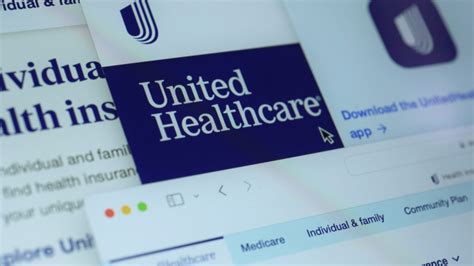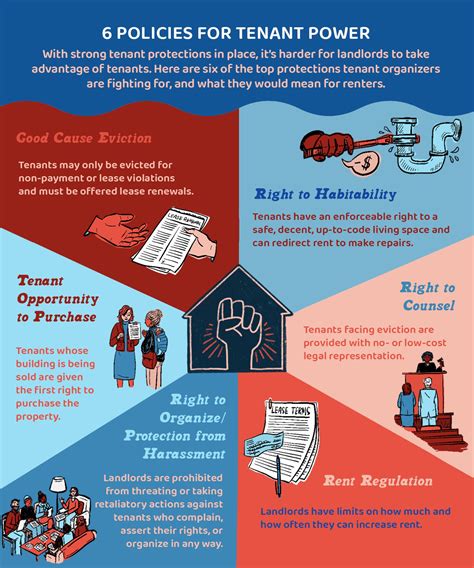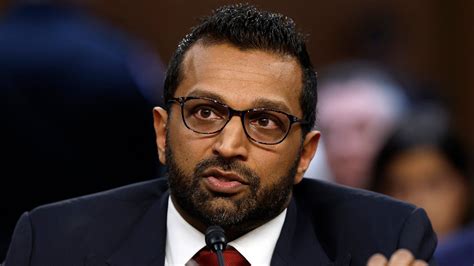
UnitedHealth’s recent financial struggles, including a significant cybersecurity attack and higher-than-expected medical costs, have exposed fundamental vulnerabilities within the Medicare Advantage program, raising concerns about its long-term sustainability and effectiveness in providing affordable and quality healthcare for seniors.
The financial turbulence at UnitedHealth Group, the nation’s largest health insurer, serves as a stark warning about the inherent flaws in the Medicare Advantage (MA) system. A confluence of factors, including a crippling cyberattack on its subsidiary Change Healthcare and unexpectedly high medical costs, has triggered a reassessment of the program’s viability and its ability to deliver cost-effective care.
“The Change Healthcare hack was a major body blow, disrupting payments and care across the country,” noted experts, highlighting the fragility of the interconnected healthcare infrastructure and its susceptibility to cyber threats. This incident not only impacted UnitedHealth’s bottom line but also underscored the broader risk to patient care and data security within the MA framework.
Beyond the immediate fallout from the cyberattack, UnitedHealth’s financial woes are symptomatic of deeper structural issues within Medicare Advantage. The program, which allows private insurers to manage Medicare benefits, has long been criticized for its complex payment models, potential for overbilling, and insufficient oversight. The current crisis amplifies these concerns, suggesting that the MA model may be inherently susceptible to financial instability and vulnerable to exploitation.
One of the central criticisms of Medicare Advantage revolves around its payment structure. Insurers receive capitated payments from the government for each enrollee, theoretically incentivizing them to manage costs effectively. However, this system also creates opportunities for “upcoding,” where insurers exaggerate the severity of patients’ conditions to receive higher payments. The Department of Justice has actively pursued cases against MA plans for alleged fraud and abuse related to upcoding, reflecting the ongoing scrutiny of these practices.
According to reports, “the incentives within Medicare Advantage encourage insurers to maximize payments, sometimes at the expense of patient care.” This perverse incentive structure can lead to unnecessary tests, treatments, and hospitalizations, ultimately driving up healthcare costs without necessarily improving health outcomes. The resulting financial strain not only affects taxpayers but also places pressure on the entire healthcare system.
The financial difficulties faced by UnitedHealth are not unique to the company, and other insurers participating in the MA program may face similar challenges. The aging population, rising healthcare costs, and increasing prevalence of chronic diseases are putting a strain on all healthcare providers, but the MA model’s inherent vulnerabilities exacerbate these pressures.
The program’s rapid growth has also outpaced the government’s ability to effectively oversee its operations. The Centers for Medicare & Medicaid Services (CMS) is responsible for regulating MA plans, but its resources are often stretched thin, making it difficult to detect and prevent fraud and abuse. The lack of robust oversight further incentivizes improper billing practices and compromises the integrity of the program.
Moreover, the complex rules and regulations governing Medicare Advantage create opportunities for insurers to exploit loopholes and manipulate the system. These complexities make it challenging for beneficiaries to understand their coverage and navigate the healthcare system, leaving them vulnerable to unfair practices.
The current crisis at UnitedHealth has reignited calls for fundamental reforms to the Medicare Advantage program. Some experts advocate for a complete overhaul of the payment system, moving away from capitation and towards a more transparent and accountable model. Others call for increased oversight and enforcement, with greater resources allocated to CMS to detect and prevent fraud and abuse.
A growing number of policymakers are also questioning the wisdom of allowing private insurers to manage Medicare benefits. Some propose a return to the traditional fee-for-service Medicare system, arguing that it is more transparent, accountable, and less susceptible to financial manipulation. However, such a move would likely face strong opposition from the insurance industry and those who support the MA model’s emphasis on managed care and preventive services.
The future of Medicare Advantage remains uncertain. The program has become increasingly popular among seniors, who are attracted by its comprehensive benefits and lower out-of-pocket costs. However, its long-term sustainability depends on addressing its inherent flaws and ensuring that it truly delivers value for both taxpayers and beneficiaries.
The issues plaguing UnitedHealth Group, stemming from the Change Healthcare cyberattack, offer a critical case study. The cyberattack exposed the fragility of the centralized healthcare infrastructure, particularly the reliance on a single entity for vital payment processing. When Change Healthcare was crippled, the effects rippled throughout the entire healthcare ecosystem, impacting hospitals, pharmacies, and physician practices across the nation.
“The cyberattack was a wake-up call, demonstrating the vulnerability of our healthcare system to cyber threats,” experts noted. The incident not only disrupted payments but also compromised patient data and undermined confidence in the security of the healthcare infrastructure.
Furthermore, UnitedHealth’s struggles highlight the importance of cybersecurity investments and preparedness within the healthcare industry. Insurers and healthcare providers must prioritize data security and implement robust safeguards to protect against future attacks. This includes investing in advanced security technologies, training employees on cybersecurity best practices, and developing comprehensive incident response plans.
The financial fallout from the cyberattack underscores the need for greater collaboration between the public and private sectors to address cybersecurity threats. The government can play a role in providing guidance, sharing threat intelligence, and supporting cybersecurity research and development. Insurers and healthcare providers can contribute by sharing best practices, collaborating on threat detection and prevention, and participating in industry-wide cybersecurity initiatives.
Beyond the immediate impact of the cyberattack, UnitedHealth’s financial challenges also reflect the broader trend of rising healthcare costs. The aging population, the increasing prevalence of chronic diseases, and the development of expensive new technologies are all contributing to the escalating cost of healthcare. Medicare Advantage plans, like all healthcare providers, are struggling to manage these rising costs while still providing quality care.
The program’s incentives, which reward insurers for enrolling healthy beneficiaries and discouraging them from enrolling sicker ones, also contribute to inequities within the healthcare system. Insurers may engage in practices such as cherry-picking, where they target healthy individuals for enrollment while avoiding those with pre-existing conditions or chronic illnesses. This can leave vulnerable populations with limited access to affordable healthcare.
The debate over Medicare Advantage also raises fundamental questions about the role of private insurers in healthcare. Proponents of the MA model argue that private insurers are more efficient and innovative than the traditional fee-for-service Medicare system. They claim that MA plans can provide better coordinated care, improve health outcomes, and lower costs.
Critics, however, contend that private insurers are primarily motivated by profit, and that their involvement in Medicare leads to unnecessary administrative costs, fraud, and abuse. They argue that the traditional fee-for-service system is more transparent, accountable, and better suited to meeting the needs of all beneficiaries.
The future of Medicare Advantage will likely depend on the outcome of this ongoing debate. Policymakers must carefully weigh the pros and cons of the program and consider alternative approaches to providing affordable and quality healthcare for seniors. Reforming the MA payment system, strengthening oversight and enforcement, and promoting greater transparency and accountability are all essential steps towards ensuring the program’s long-term sustainability.
Ultimately, addressing the flaws in Medicare Advantage requires a comprehensive approach that takes into account the complex interplay of factors affecting the healthcare system. This includes addressing cybersecurity threats, managing rising healthcare costs, promoting equitable access to care, and ensuring that private insurers are held accountable for their performance.
The UnitedHealth situation offers a significant opportunity to re-evaluate the effectiveness and fairness of the current system. This entails examining the risk adjustment methodologies employed in Medicare Advantage, which are designed to compensate plans for enrolling sicker patients. Critics argue that these methodologies are easily gamed by insurers, leading to inflated payments and windfalls.
Furthermore, the lack of transparency in Medicare Advantage contracts makes it difficult to assess whether the program is truly delivering value for taxpayers. The contracts between CMS and MA plans are often shrouded in secrecy, making it challenging for researchers and policymakers to understand how the program operates and whether it is achieving its intended goals.
Strengthening consumer protections is also crucial to ensuring that beneficiaries are not harmed by the program’s flaws. Many seniors are unaware of the limitations of Medicare Advantage plans, such as restricted provider networks and the need for prior authorizations. This can lead to unexpected costs and difficulties in accessing care.
Providing beneficiaries with clear and accurate information about their coverage options is essential to empowering them to make informed decisions about their healthcare. This includes educating seniors about the differences between Medicare Advantage and traditional Medicare, as well as the potential risks and benefits of each option.
The future of Medicare Advantage also hinges on addressing the challenges posed by the increasing consolidation of the healthcare industry. As insurers and healthcare providers merge, they gain greater market power, which can lead to higher prices and reduced competition. This consolidation trend is particularly concerning in the Medicare Advantage market, where a handful of large insurers dominate the landscape.
Policymakers must carefully scrutinize proposed mergers and acquisitions in the healthcare industry to ensure that they do not harm consumers or reduce competition. Antitrust enforcement can play a role in preventing excessive consolidation and promoting a more competitive marketplace.
Addressing the flaws in Medicare Advantage also requires a broader discussion about the goals and priorities of the healthcare system. Should the focus be on maximizing profits for private insurers, or on ensuring that all Americans have access to affordable and quality healthcare? This is a fundamental question that must be addressed in order to create a healthcare system that truly serves the needs of all.
The situation underscores the need for continuous monitoring and evaluation of the Medicare Advantage program. CMS should regularly assess the program’s performance and make adjustments as needed to address emerging challenges and ensure that it is meeting its goals. This includes tracking key metrics such as enrollment rates, health outcomes, costs, and beneficiary satisfaction.
Transparency and data sharing are also essential for effective monitoring and evaluation. CMS should make data on Medicare Advantage plans publicly available so that researchers, policymakers, and the public can assess the program’s performance and identify areas for improvement.
In conclusion, the UnitedHealth’s financial difficulties serve as a wake-up call, exposing the flaws in the Medicare Advantage program. Addressing these flaws requires a comprehensive approach that includes reforming the payment system, strengthening oversight and enforcement, promoting greater transparency and accountability, and strengthening consumer protections. The future of Medicare Advantage depends on policymakers’ willingness to address these challenges and ensure that the program truly delivers value for both taxpayers and beneficiaries. The program’s long-term viability hinges on a commitment to transparency, accountability, and a relentless focus on improving the health and well-being of all seniors.
Frequently Asked Questions (FAQs)
1. What is Medicare Advantage?
Medicare Advantage (MA) is a type of Medicare health plan offered by private companies that contract with Medicare to provide Part A (hospital insurance) and Part B (medical insurance) benefits. MA plans may also offer extra benefits, such as vision, hearing, and dental care. Instead of Original Medicare, you get your Medicare benefits through an MA plan.
2. What are the main criticisms of the Medicare Advantage program?
The main criticisms include:
- Upcoding: Insurers exaggerating the severity of patients’ conditions to receive higher payments.
- Cherry-picking: Insurers targeting healthy individuals for enrollment while avoiding those with pre-existing conditions or chronic illnesses.
- Lack of Transparency: Complex contracts between CMS and MA plans make it difficult to assess the program’s effectiveness.
- Restricted Provider Networks: Beneficiaries may have limited choices of doctors and hospitals.
- Prior Authorizations: Requiring approval for certain medical services, which can delay or deny care.
3. How did the Change Healthcare cyberattack affect UnitedHealth and the healthcare system?
The cyberattack on Change Healthcare, a UnitedHealth subsidiary, disrupted payments and care across the country. It affected hospitals, pharmacies, and physician practices, compromising patient data and undermining confidence in the security of the healthcare infrastructure. UnitedHealth incurred significant financial losses due to the disruption and the costs associated with remediation and recovery.
4. What reforms are being proposed for the Medicare Advantage program?
Proposed reforms include:
- Overhauling the payment system to eliminate incentives for upcoding.
- Strengthening oversight and enforcement by CMS to detect and prevent fraud and abuse.
- Increasing transparency in MA contracts and data.
- Strengthening consumer protections to ensure beneficiaries understand their coverage and can access care.
- Re-evaluating risk adjustment methodologies to prevent inflated payments.
5. What are the long-term implications of UnitedHealth’s struggles for the future of Medicare Advantage?
UnitedHealth’s struggles highlight the inherent vulnerabilities of the MA program and raise questions about its long-term sustainability. If the program’s flaws are not addressed, it could lead to financial instability for insurers, reduced access to care for beneficiaries, and increased costs for taxpayers. The situation underscores the need for fundamental reforms to ensure that the MA program truly delivers value for both taxpayers and beneficiaries and effectively serves the healthcare needs of seniors.









